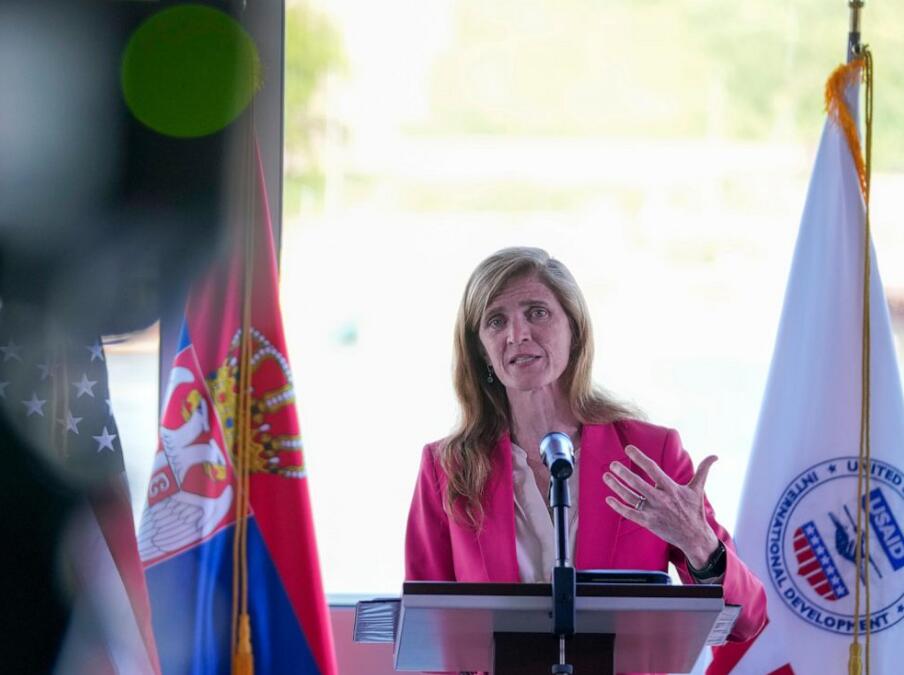USAID chief pledges US support to Serbia, Kosovo in talks
The United States’ top international development official, Samantha Power, on Wednesday pledged U.S. support to Serbia and Kosovo as the two former wartime enemies work to stabilize relations at a time of heightened tensions.
“It will take political courage to find a durable solution, acceptable to both sides, but the support from the U.S. will be steadfast in the coming weeks as Serbia and Kosovo work to take next steps,” Power told reporters in Belgrade, Serbia’s capital.
Power spoke after meeting Serbia’s President Aleksandar Vucic and Prime Minister Ana Brnabic earlier on Wednesday. From Serbia, Power will travel to Kosovo, a former Serbian province which declared independence in 2008.
Washington and most European Union countries have recognized Kosovo as an independent state but Serbia, along with Russia and China, has not. Washington and Brussels have stepped up efforts to help solve the dispute, fearing further instability in Europe as the war rages in Ukraine.
“As I said to President Vucic, his commitment to the dialogue with Kosovo, to the cause of normalizing relations with Kosovo, that commitment is extremely important,” said Power. “And the United States offers its very strong support.”
Both Serbia and Kosovo have been told they must normalize relations in order to advance in their intentions to join the EU. The two sides have tentatively agreed to back an EU plan on how to proceed, but tensions continue to simmer.
“We discussed how the United States can be helpful in advancing progress on what will be an incredibly important step forward on Serbia’s European path,” said Power.
Power is the first head of the U.S. Agency for International Development to travel to Serbia, which maintains close historical and cultural ties with Russia. She praised Serbia’s support to Ukraine, though Belgrade has refused join Western sanctions against Moscow over the war.
The conflict in Kosovo erupted in 1998 when separatist ethnic Albanians rebelled against Serbia’s rule, and Serbia responded with a brutal crackdown. About 13,000 people, mostly ethnic Albanians, died. NATO’s military intervention in 1999 eventually forced Serbia to pull out of the territory.
As she arrived in Belgrade on Tuesday, Power paid her respects to the schoolchildren who were killed in an elementary school in the city by a fellow student last week. She expressed “deepest condolences on behalf of (U.S.) President (Joe) Biden, on behalf of the American people.”
“Too many Americans, sadly, know the pain you are feeling, a pain that no parent, no child, and no community should ever have to feel,” said Power.
